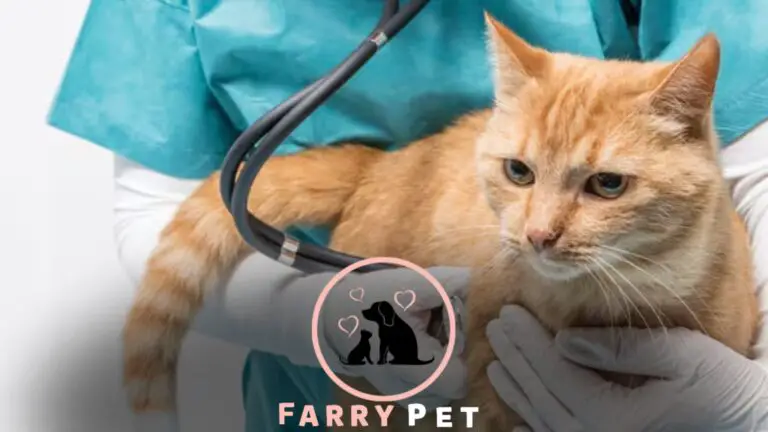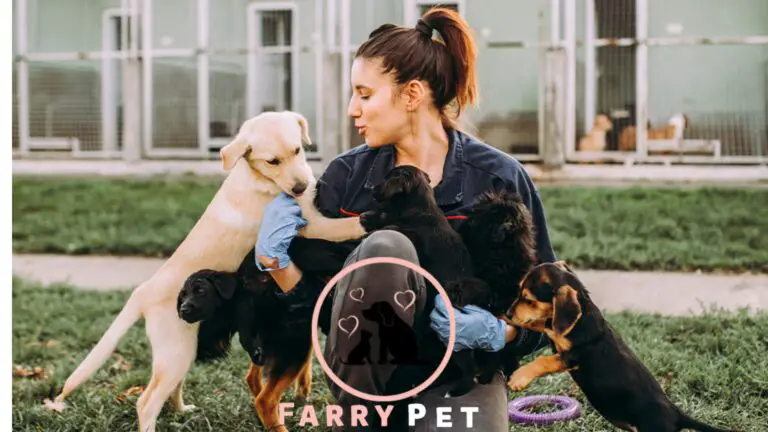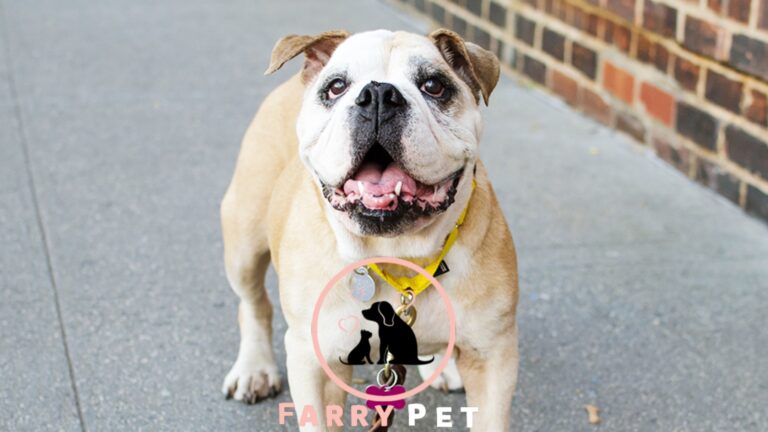
Pets typically require rabies shots every one to three years, depending on local regulations and vaccine type. Veterinarians guide the appropriate vaccination schedule for individual pets.
Ensuring your pets receive rabies vaccinations as recommended safeguards their health and public safety. Rabies is a severe, often fatal, viral disease affecting the nervous system of mammals, including humans.
Keeping up with rabies vaccinations is not just a responsible pet care practice but also a legal requirement in many areas.
These shots are crucial for preventing the disease’s spread and maintaining a rabies-free community.
Regular check-ups with a veterinarian will keep pet owners informed about their pets’ vaccination needs and any changes in local health guidelines.
A proactive approach to pet vaccinations is key to managing this preventable health risk.
The Threat of Rabies to Pets
Understanding the threat of rabies to pets is crucial for any pet owner. Rabies, a deadly virus, affects the central nervous system and can infect all mammals, including dogs, cats, and humans.
Protecting pets with regular rabies vaccinations is a vital defense against this fatal disease.
Rabies Transmission and Symptoms
Rabies spreads through the saliva of infected animals, usually through a bite. It can also be transmitted if saliva comes in contact with open wounds or mucous membranes.
The symptoms vary but generally include behavior changes, fever, and paralysis as the disease progresses.
Implications for Pet Health
Rabies poses a serious risk to pet health. Once symptoms appear, rabies is nearly always fatal. Early vaccination is the most effective way to protect pets.
The vaccination schedule for rabies can depend on local regulations and the type of vaccine used.
| Pet Type | First Vaccination Age | Booster Shots |
| Dogs | 3-4 months | Every 1-3 years |
| Cats | 3-4 months | Every 1-3 years |
Rabies Vaccination: A Critical Shield
Protecting our furry friends from harmful diseases stands paramount for any pet owner. No other bears the critical importance quite like the rabies vaccination.
Not only does it preserve your pet’s health, but it also acts as a barrier against potential public health crises. Understanding the frequency of these shots helps ensure pets stay happy and healthy. Let’s dive into the details.
Components of the Rabies Vaccine
The rabies vaccine is a powerhouse against fatal viruses. It contains:
- Inactivated Rabies Virus: This destroyed virus cannot cause disease.
- Adjuvants: These increase the body’s immune response.
- Preservatives: They keep the vaccine stable.
Benefits of Vaccinating Pets
Vaccinating pets comes with many benefits.
- Prevents Disease Spread: It stops rabies from reaching other animals and humans.
- Lifetime Protection: After initial shots, booster shots offer long-term defense.
- Legal Requirement: Most places require by law that pets get vaccinated.
Vaccination Schedules: Puppies and Kittens
When it comes to our furry friends, safeguarding their health is crucial. Preventive measures like rabies shots are inherent to their well-being.
For puppies and kittens, the inception of their vaccination journey is a vital period. It sets the foundation for a robust immune system.
Understanding the appropriate schedules for these initial vaccines ensures pets stay healthy and happy through their tender years.
Initial Rabies Vaccination Protocol
The journey against rabies begins early. Puppies and kittens receive their first rabies vaccine between 12 to 16 weeks of age. This shot is a cornerstone of their immunity.
It is mandatory in many places due to the deadly nature of the disease.
- First vaccine: Administered at 12-16 weeks
- Booster shot: Given 1 year after the initial shot
- Adult vaccines: Administered every 1-3 years based on local laws and vaccine type
Factors Determining Vaccine Frequency
Pet vaccination schedules can vary. Various elements influence the frequency of rabies shots for pets. Key factors include:
| Factor | Description |
|---|---|
| Local laws | Regulations may dictate vaccine timelines. |
| Vaccine type | Some vaccines are stronger and last longer. |
| Pet’s health | A vet will consider the pet’s health status. |
| Pet’s lifestyle | Indoor versus outdoor pets have different needs. |
It’s essential to consider these factors and consult with a veterinarian. They provide tailored advice for each pet.
Stick to the recommended schedule to ensure your pets remain protected.
Adult Pets: Ongoing Rabies Prevention
Once pets grow past their initial vaccinations, their need for rabies shots doesn’t simply disappear. Adult pets require regular boosters to maintain their defenses against this deadly virus.
Let’s explore how to keep our furry friends safe and healthy with ongoing rabies prevention.
Boosters for Lifelong Immunity
Rabies boosters are crucial for maintaining your pet’s immunity for their life.
- Dogs and cats usually get their first rabies booster one year after their initial shot.
- After this, most pets need a booster every three years.
- Some vaccines are approved for longer intervals, so check with your vet.
- Protecting pets protects people, too.
State Regulations and Recommendations
State laws can dictate the frequency of rabies vaccinations for pets.
| State | Rabies Booster Interval | Additional Requirements |
| California | Every 3 years | Licensing required |
| Texas | Annually or every 3 years | Depends on local ordinances |
| New York | Every 1 to 3 years | Proof for groomers, kennels |
Always consult local regulations because they can vary, even within the same state.
Special Circumstances Affecting Rabies Vaccination
Rabies vaccinations are crucial for our pets’ health. Standard guidelines exist. Yet, special circumstances require extra care. Some pets need different plans for rabies shots.
Health issues and travel change these plans. Let’s explore how these situations impact rabies vaccination schedules.
Pets With Health Issues
Pets that have health problems might need a different vaccine plan. A weak immune system changes things.
Allergies to vaccine ingredients are also a concern. Vets decide the best path. They may choose a different vaccine type or timing. Here is what to consider:
- Chronic conditions: Pets with ongoing health problems might have a special schedule.
- Vaccine reactions: Previous bad reactions can lead to adjusted plans.
Traveling and Export Requirements
Traveling pets face different rules. Different countries have their own rules. Some need a rabies shot every year. Others accept a three-year vaccine.
Check the rules before travel. Always prepare in advance. This will ensure a smooth trip for your furry friend.
Consequences of Skipping Rabies Shots
The consequences of Skipping Rabies Shots are severe and far-reaching.
Legal and Health Risks
The risks are substantial when a pet doesn’t receive their rabies vaccination. Owners face legal consequences. These include:
- Fines and penalties due to non-compliance with local laws.
- Pet quarantine or even euthanasia if they bite someone.
Unvaccinated pets pose a risk to their health. They can contract rabies from wildlife.
This disease is nearly always fatal in animals once symptoms appear. Early vaccination is crucial for their well-being.
Community Safety and Public Health Concerns
Rabies is a zoonotic disease; it can spread from animals to people. This puts the entire community at risk.
| Community Aspect | Impact of Unvaccinated Pets |
|---|---|
| Public Health | Increased potential for rabies outbreaks among humans. |
| Safety | There is a higher likelihood of aggressive encounters with infected animals. |
Vaccination schedules depend on local regulations and the type of rabies vaccine used.
Pets might need shots as frequently as every year or every three years. Consult with a vet for the most accurate schedule.

Frequently Asked Questions
How Often Do Dogs Need Rabies Shots?
Dogs typically require rabies vaccinations every 1-3 years, as determined by local regulations and vaccine type. Consult a veterinarian for your pet’s specific schedule.
How Often Do Indoor Cats Need Rabies Shots?
Indoor cats typically need rabies shots every one to three years, as advised by a veterinarian based on local laws and vaccine type. Always consult your vet for a personalized vaccination schedule.
How Long is Rabies Vaccine Good For?
A rabies vaccine’s efficacy typically lasts one to three years, depending on the vaccine type and local regulations. Always consult a veterinarian for current schedules.
How Often Do Dogs Need Rabies Shots in Nebraska?
In Nebraska, dogs require a rabies vaccination every three years, following their initial shot and one-year booster. Always consult with a local veterinarian for current regulations and requirements.
What is Rabies Vaccination Frequency for Pets?
Rabies vaccines for pets are typically administered every 1 to 3 years, depending on local regulations and the type of vaccine used.
Conclusion
Protecting your pets from rabies is a crucial aspect of responsible pet ownership. Regular vaccinations, as guided by your vet, ensure your pet’s health and the safety of those around them.
Remember to mark the calendar for their next shot, maintain up-to-date records, and enjoy the peace of mind that comes with a well-protected companion.
Protecting our furry friends is simple: stay informed, vigilant, and proactive with their rabies vaccinations.






